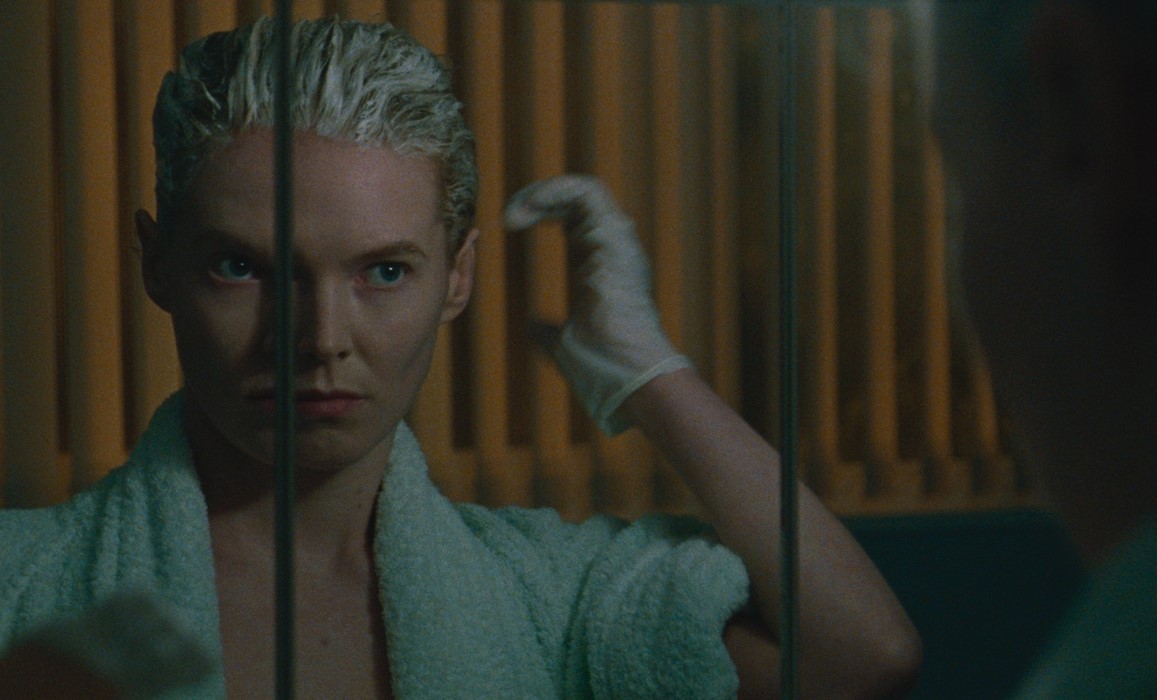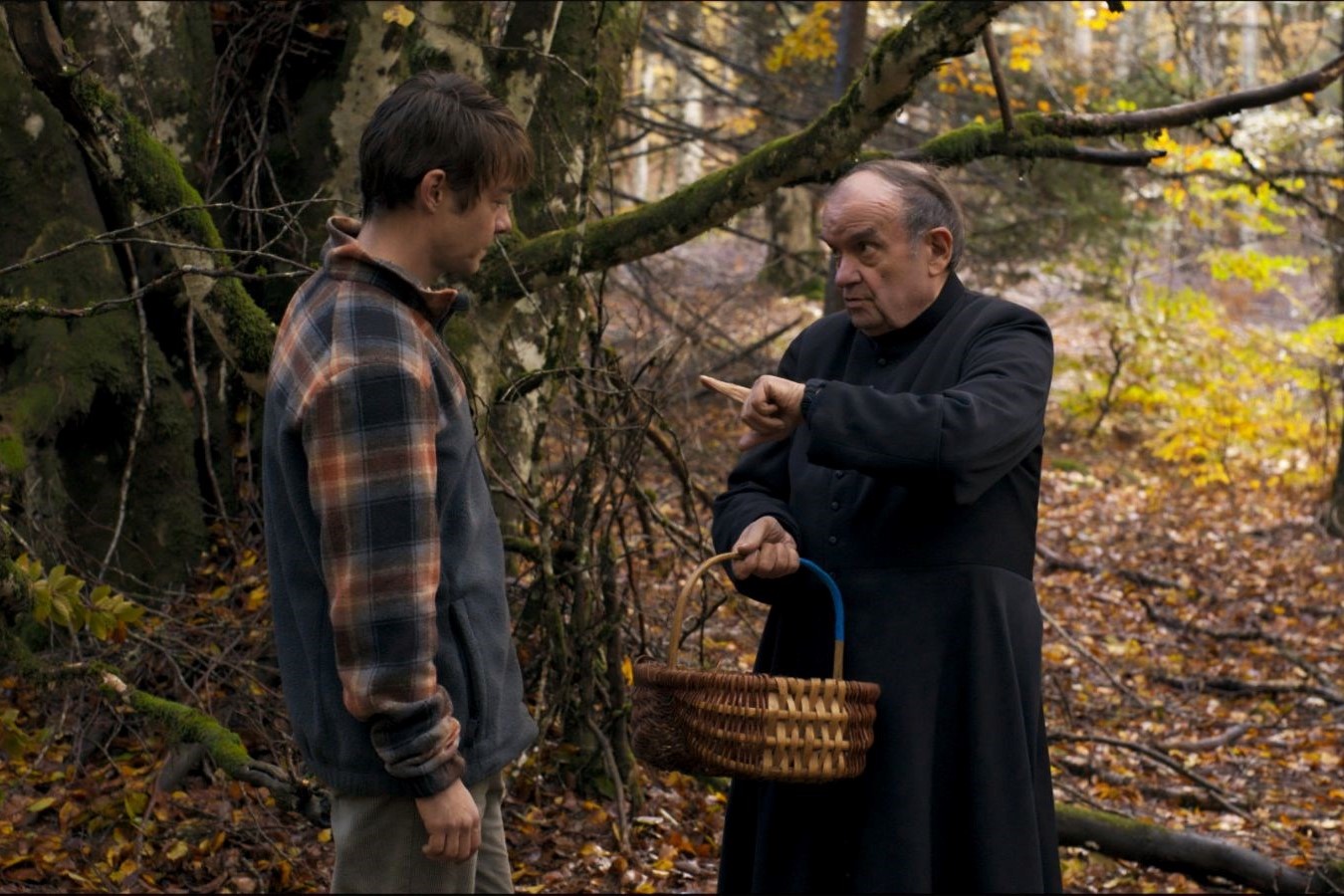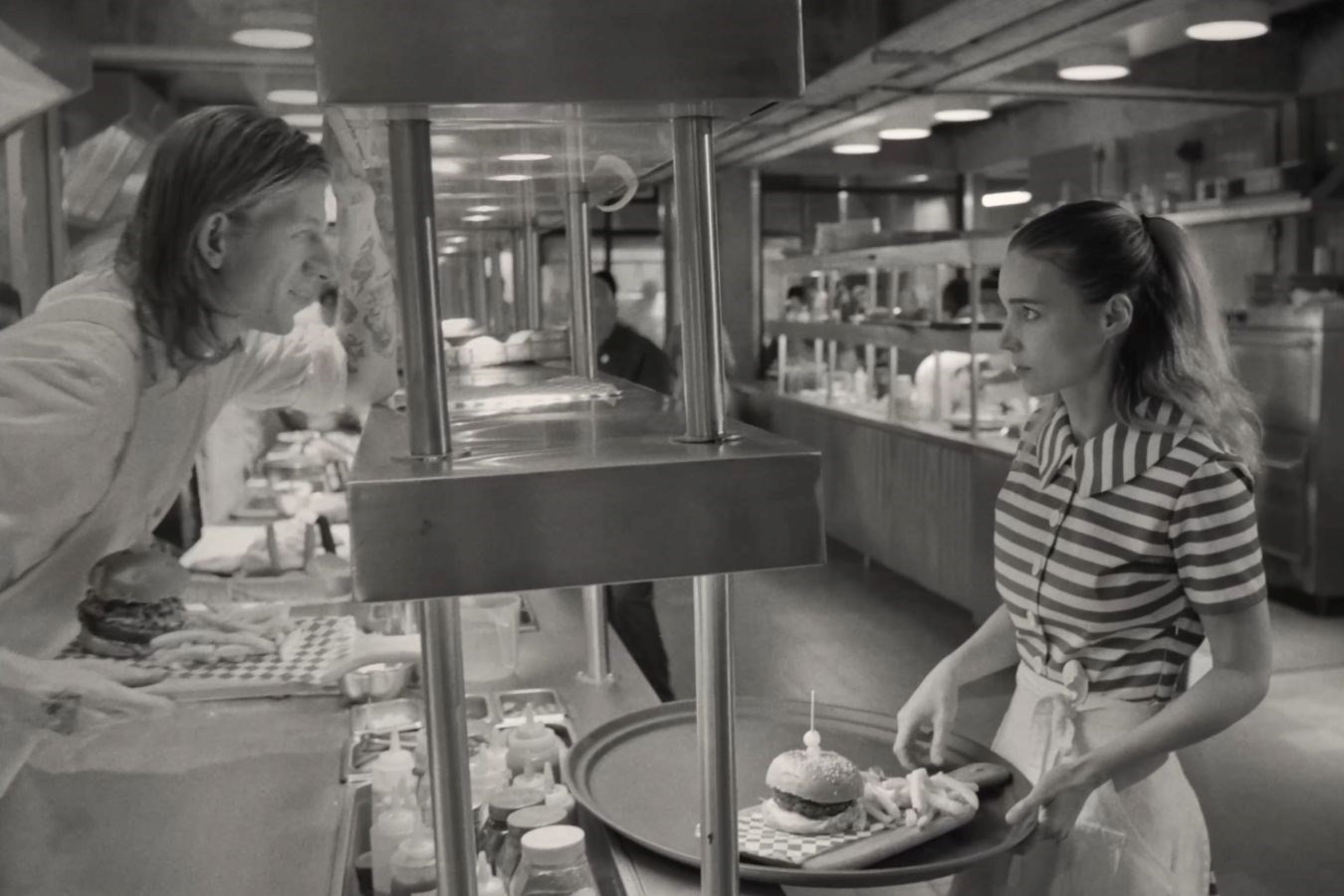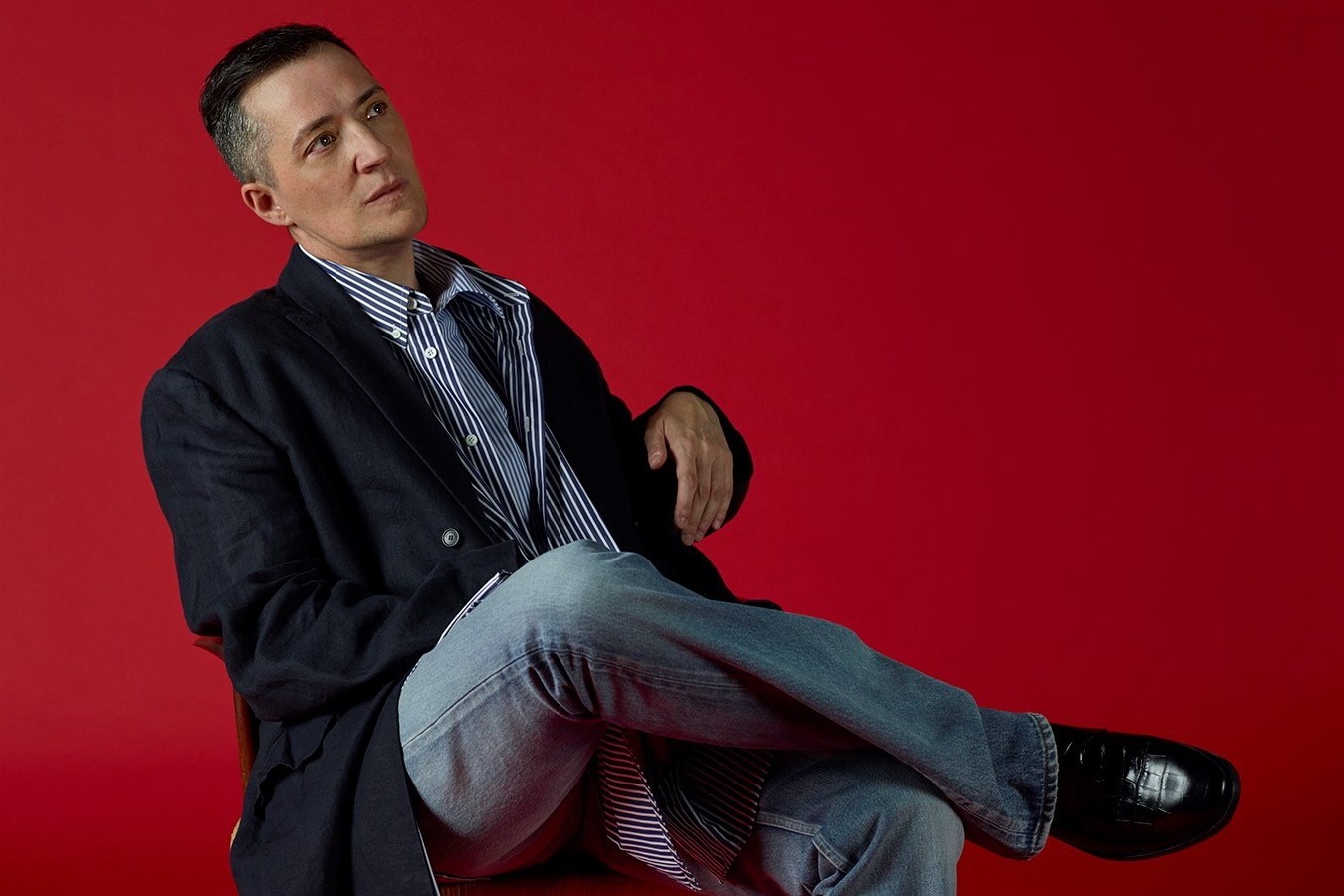The star of Blue Jean discusses the intricacies of crafting a character who tries to make herself invisible, the erasure of Section 28 from British history, and the importance of centring radical queer joy
In Georgia Oakley’s hypnotic debut Blue Jean, the eponymous Jean – a lesbian PE teacher working in a northern English high school – is continuously bathed in a piercing, oceanic glow. Blue light filters in through her gymnasium windows as she runs netball drills, blue tiles glint through her house, blue ripples distort her face as she lies in her bathtub. Jean, polite and contained and quietly terrified, is living a hushed double life during the nascent days of Section 28, the 1988 British law that prohibited the “promotion of homosexuality” in schools. Under its watchful gaze – the clipped tones of Margaret Thatcher echoing on the radio, the careless disgust of family and colleagues felt in passing – she is slowly drowning.
Blue Jean is the latest in a long and proud British cinematic tradition that seeks to unpick the violent legacies of the Thatcher years, both revealing the capacity of policy to devastate quotidian life, and of everyday acts to transform into resistance. We spoke with Rosy McEwen, who plays Jean in her first leading role, about the intricacies of crafting a character who tries to make herself invisible, the erasure of Section 28 from British history, and the importance of centring radical queer joy.
Anahit Behrooz: I was struck watching Blue Jean by Jean’s chameleonic nature. When we first see her she’s dying her hair – it’s like she’s constantly shape-shifting. How did you work to capture such an elusive character?
Rosy McEwen: One of the things Georgia [Oakley] and I first talked about is how Jean puts on a mask for every social situation. She feels the pressure to perform and – not to take this away from the lesbian experience – but I feel that's something we all feel, particularly as women. That we have to be a certain type of person: aesthetically perfect or intelligent or funny. We were lucky to first start shooting at Jean’s house and for Jean, that's where she feels safest. That's the only place where her masks are off and she can really let go. We could start from the beginning where she’s most authentically herself.
Anahit Behrooz: She’s such a reserved character. How did it feel to be playing someone who is so caught in their own interiority?
Rosy McEwen: It was really hard to keep it all in. While we were filming, bizarrely, there were nights when I’d wake up and just start crying. I'd held it in so much, and I felt like Jean wouldn't allow herself to release. And that is way more tiring than having a big old cry, because getting everything out is cathartic. I hadn't really anticipated that – it was more exhausting than I thought it was going to be.
Even though this was based on something real, real women who were living this life, you still have to make the character your own. That's the final piece of the puzzle when you're creating a character: you work out what they like for breakfast and the way they move and talk and then the final piece is a little bit of yourself that aligns with who they are. It's the pairing of yourself and all the rest.
Anahit Behrooz: What was the bit of yourself that you put in Jean?
Rosy McEwen: What I spoke about before, I think: that pressure society puts on women to be so much that there isn't enough freedom to be our authentic selves. That frustrates me a lot, and it holds me back. Jean taught me so much about having courage, and not feeling like you have to fit into the tiny space that's been given to you.
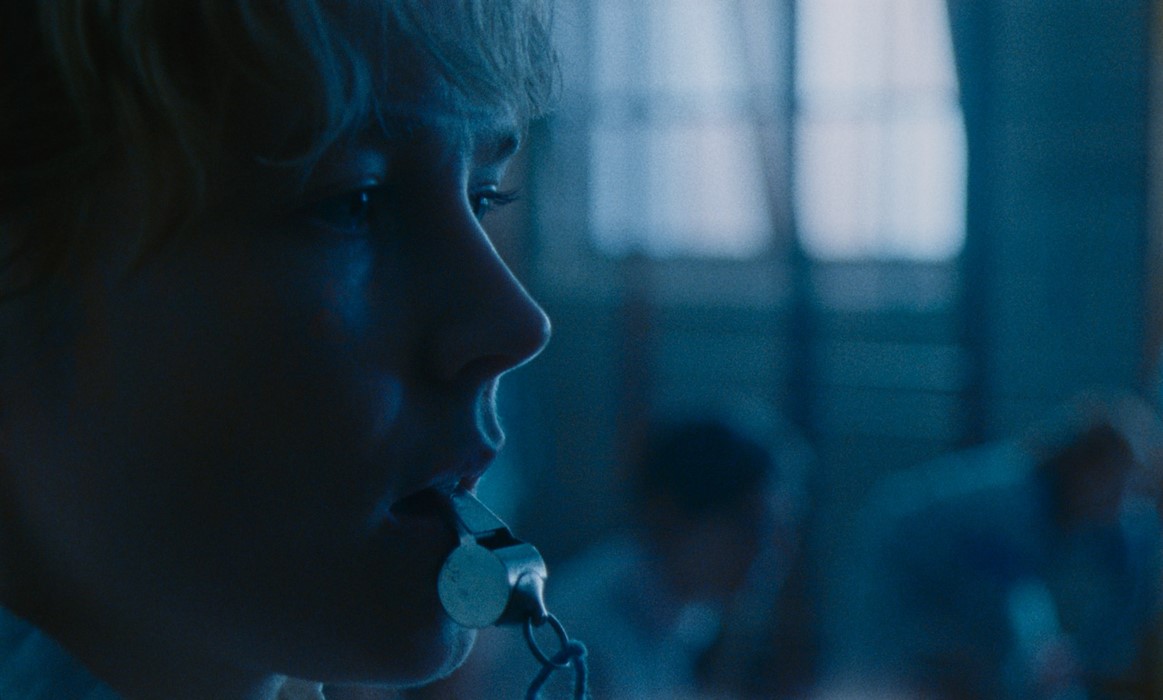
Anahit Behrooz: I loved how this film builds out its queer world, almost like a process of queer archiving. Was getting to grips with the granular parts of that history also important?
Rosy McEwen: Oh, yeah, absolutely. There’s the messaging that she was reading and seeing on a day-to-day basis, whether it’s Margaret Thatcher’s voice on the radio talking about normative relationships or even Blind Date, and how much pressure is put on femininity as what defines a woman. I [wanted] to surround myself with exactly what Jean would have been seeing and hearing every single day. Although it was heartbreaking and frustrating, it was really helpful to have it seep into my psyche.
Anahit Behrooz: It seems to me that British cinema keeps returning to this period. Is there something about the Thatcherite era that makes it such fertile ground?
Rosy McEwen: Well, I actually think I have to disagree. Because yes, Margaret Thatcher's [term] was a big time of change for Britain, but actually, I didn't even know Section 28 had existed before I read the script, and I was at school when it was abolished in 2003. It feels like the story has never been told. The reason I think people are responding to [Blue Jean] is because everyone’s like, ‘How did I not know about this?’ And I feel like lesbians in particular fall into shadow. If you think about the representation of lesbians on screen, it’s usually very aesthetic and oversexualised. To see lesbians, butch lesbians, beautiful lesbians, just being a couple feels so refreshing and necessary.
Anahit Behrooz: Why do you think we have forgotten?
Rosy McEwen: I don’t know. It feels like a shameful secret. And it being abolished in 2003 … There was nothing really about it being abolished, there wasn’t a big release. It just sort of slid under the carpet like, “Oh, we already did this really bad thing, let’s just get rid of it and not tell anyone.” I think people are ashamed.
Anahit Behrooz: At the same time, Blue Jean also offers a really beautiful depiction of queer community. Why was it so important to centre this kind of queer joy?
Rosy McEwen: It's so lovely to have [Jean’s girlfriend] Viv and her friends as part of the story rather than just Jean struggling. It makes it a character study, both of Jean and also Viv. I remember Georgia told me that when she met Sarah, one of our [consultant] teachers who was working at the time, that they had lots of conversations about what this time was like. And then at the end of their chat, Sarah said: “Please just make us cool, because we were cool. We were really well-dressed. And we were badass.”
Blue Jean is out on February 10, 2023.
